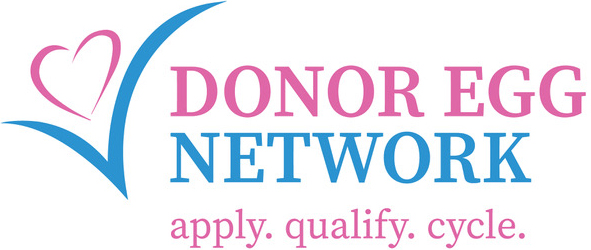Future Fertility After Egg Donation

A primary concern for women considering egg donation is whether their generous decision threatens their future fertility. The good news is that there is no correlation between egg donation and future infertility.
Rigid Screening Identifies Egg Donors’ Future Fertility Potential
Prospective egg donors go through meticulous genetic, physical and psychological screening. While family and personal medical histories are carefully reviewed, the screening process also includes a “fertility workup” of sorts.
Women who qualify to donate their eggs have healthy egg reserves, verified by pre-donation hormone testing and imaging. The initial applications are reviewed by multiple health care professionals. Once approved to move forward, the initial evaluation for AMH and AFC values is scheduled.
The Anti-Mullerian hormone or AMH levels provide good indication of your egg count - high-, normal-, or lower-than-normal as it relates to women of the same age. If AMH levels are in the low range, you are not allowed to donate your eggs.
Then, we use a transvaginal ultrasound to assess your antral follicle count (AFC). Antral follicles are small, fluid-filled sacs that house your immature eggs. They are visible via ultrasound, allowing us to count them. If your antral follicle count is in the lower range, then a successful egg donation cycle is less likely.
Donor candidates who do not meet the minimum qualifications for egg donation rarely have fertility concerns relating to their own eggs. It only takes one egg to make a baby! However, if there is a concern, the fertility physician will follow up accordingly. If your AMH and AFC results are strong enough to qualify as an egg donor, then studies show that you have enough eggs to get pregnant in the future.
Study Correlates High Fertility Rates for Egg Donors
Studies that follow egg donors and their future fertility rates bode well for donors who want to have children in the future. For example, a 2012 study followed 60 egg donors. All 60 women conceived using their own eggs when they were ready to begin a family.
Fifty-four women got pregnant within one calendar year of trying to conceive at home, without any need for fertility treatment. Three women conceived within 18 months. The remaining three sought infertility treatment, but two of these were for sperm issues. Even so, all three of the egg donors got pregnant within 18-months of trying.
These statistics are higher than normal when you consider the CDC statistics, which cite about 8 percent of women in the United States, between the ages of 15 and 40, struggle with infertility.
Egg Donation Risks are Minimal & Rarely Threaten Fertility
The most common “risks” associated with egg donation are short-term and are the by-product of injectable fertility medications. Women who donate their eggs go through the same first-phase procedure as women participating in IVF. They use injectable drugs to hyper-stimulate the ovaries.
Our goal is to retrieve between 12 - 15 eggs mature eggs. The most common risks are short-term fluid retention (or bloating) and pelvic tenderness. Although extremely rare, if symptoms become excessive or severe, egg donors are instructed to stop the injections immediately, and the side effects fade within a week or so. Long-term complications are exceedingly rare in women with a healthy reproductive history.
Are you interested in learning more about how you can donate your eggs without compromising the ability to become a mother later in life? Contact the Donor Egg Network.


